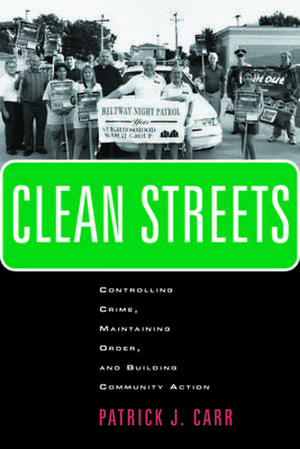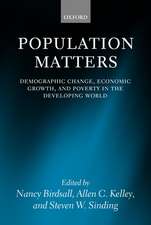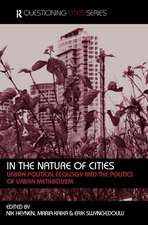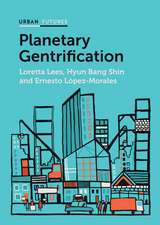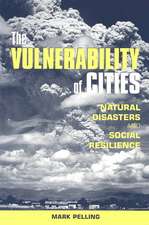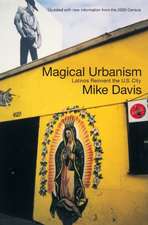Clean Streets – Controlling Crime, Maintaining Order, and Building Community Activism
Autor Patrick J. Carren Limba Engleză Hardback – 30 noi 2005
| Toate formatele și edițiile | Preț | Express |
|---|---|---|
| Paperback (1) | 223.19 lei 6-8 săpt. | |
| MI – New York University – 30 noi 2005 | 223.19 lei 6-8 săpt. | |
| Hardback (1) | 522.74 lei 6-8 săpt. | |
| MI – New York University – 30 noi 2005 | 522.74 lei 6-8 săpt. |
Preț: 522.74 lei
Preț vechi: 678.89 lei
-23% Nou
Puncte Express: 784
Preț estimativ în valută:
100.06€ • 108.72$ • 84.10£
100.06€ • 108.72$ • 84.10£
Carte tipărită la comandă
Livrare economică 21 aprilie-05 mai
Preluare comenzi: 021 569.72.76
Specificații
ISBN-13: 9780814716625
ISBN-10: 0814716628
Pagini: 209
Dimensiuni: 153 x 229 x 15 mm
Greutate: 0.4 kg
Editura: MI – New York University
ISBN-10: 0814716628
Pagini: 209
Dimensiuni: 153 x 229 x 15 mm
Greutate: 0.4 kg
Editura: MI – New York University
Recenzii
“For citizen groups, this research provides compelling stories of how neighborhoods can come together to resolve serious problems; for police and government officials, it shows how they can partner with residents to create truly community-based efforts to curb violence; and, for researchers, it furnishes a synthesis of research and points to new hypotheses that can be tested.”
—Criminal Justice Review"Clean Streets will take its place alongside other outstanding community ethnographies in the tradition of the Chicago School. An engaging and insightful book that will be widely cited and discussed."
William Julius Wilson, author of When Work Disappears: The World of the New Urban Poor"In an era of declining civic involvement, persistent fear of crime, and cynicism about the efficacy of grassroots community action, Clean Streets offers a story of hope. Using his eye for detail, Carr examines how community residents respond to gang violence, graffiti and other forms of physical disorder, unresponsive judges, and problems at the corner tavern. Clean Streets offers an intriguing organizational framework for community members and public officials in their fight against crime, violence, and disorder."
John H. Laub, co-author of Shared Beginnings, Divergent Lives: Delinquent Boys to Age 70"Patrick Carr shows us that policing can have a stimulating effect; that communities can mobilize and restore their moral force with tolerance to others and with moderation. This ethnographic study should be read. It should give us hope."
Peter K. Manning, author of Police Work: The Social Organization of PolicingIn sum, the core theoretical achievement of Clean Streets, the development of new concepts and ideas regarding successful social control at the local level, merits close attention from sociologists of various persuasions and with varied interests.
Margarethe Kusenbach, University of South Florida.
—Criminal Justice Review"Clean Streets will take its place alongside other outstanding community ethnographies in the tradition of the Chicago School. An engaging and insightful book that will be widely cited and discussed."
William Julius Wilson, author of When Work Disappears: The World of the New Urban Poor"In an era of declining civic involvement, persistent fear of crime, and cynicism about the efficacy of grassroots community action, Clean Streets offers a story of hope. Using his eye for detail, Carr examines how community residents respond to gang violence, graffiti and other forms of physical disorder, unresponsive judges, and problems at the corner tavern. Clean Streets offers an intriguing organizational framework for community members and public officials in their fight against crime, violence, and disorder."
John H. Laub, co-author of Shared Beginnings, Divergent Lives: Delinquent Boys to Age 70"Patrick Carr shows us that policing can have a stimulating effect; that communities can mobilize and restore their moral force with tolerance to others and with moderation. This ethnographic study should be read. It should give us hope."
Peter K. Manning, author of Police Work: The Social Organization of PolicingIn sum, the core theoretical achievement of Clean Streets, the development of new concepts and ideas regarding successful social control at the local level, merits close attention from sociologists of various persuasions and with varied interests.
Margarethe Kusenbach, University of South Florida.
